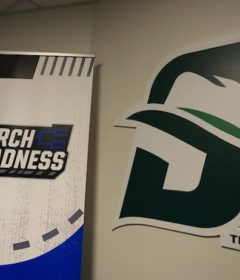‘Activism Through the Arts:’ Spoken-Word Poet Phil Kaye headlines Values Day
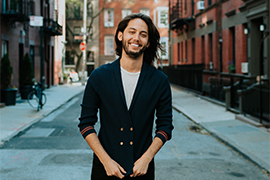
For Japanese-American spoken-word poet Phil Kaye, activism begins when people are empowered to share their own personal stories.
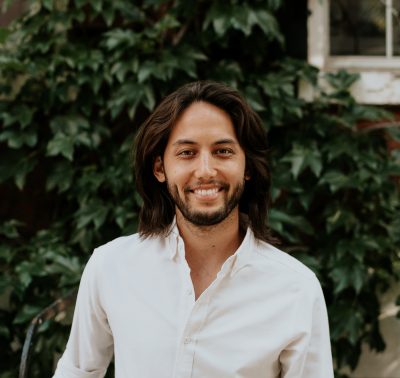
“I think there are a lot of different ways that folks can be and are activists, in ways that feel good to them and are appropriate to them,” said Kaye, who will give the keynote address during the opening session of Stetson’s Values Day on Sept. 24. This year’s theme is “Activism Through the Arts.”
“I’m sure I’m not the first person to say this but, particularly now, we are a nation so deeply divided,” Kaye said during a phone interview from his New York City home. “People patently refuse to see anything outside of their worldview. One of the keys to starting to break that down comes from empathy and comes from personal story.”
Kaye’s personal stories, in the form of videos of his spoken-word poetry, have garnered hundreds of thousands of views on YouTube.
“I think so much of what is going on in the country is a battle over narratives,” he says. “You can take any political issue and ask, ‘What is the narrative we’re putting around this thing?’ I think oftentimes it gets pretty warped and we’re not seeing all the possibilities of narratives. I think the sharing of one’s truth, one’s story is inherently, or I should say can be, a political act, particularly from folks who have had their voice marginalized over generations.
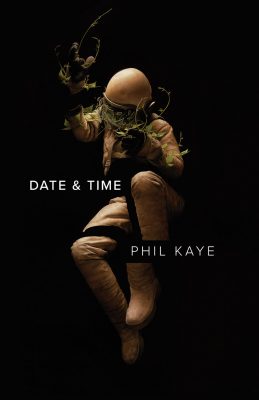
“For me, it’s less about let me getting up and telling you the answer, but rather what are the tools and avenues through which folks can tell their own story, and empowering folks to do that.”
Along with his address during the opening session at 10:30 a.m. in Lee Chapel, Kaye will lead two other activities on Values Day: He will facilitate a Q&A with people who have read his new poetry book, “Date and Time,” from 12:30-1:30 p.m. in the Lynn Presentation Room of the Rinker Welcome Center. And he will facilitate the workshop “How to Tell Your Story” from 3:30-4:45 p.m. in the Lynn Presentation Room.
Kaye’s book “Date & Time” will be the Stetson R.E.A.D. (Reflect, Engage and Affirm Diversity) for Values Day. Books will be available on campus.
Stetson R.E.A.D. was founded in 2013 and is facilitated by Rajni Shankar-Brown, PhD, associate professor and Jessie Ball duPont Chair of Social Justice Education at Stetson and executive board member of the National Coalition for the Homeless, along with Lindsey Carelli, assistant director of Interfaith Initiatives.
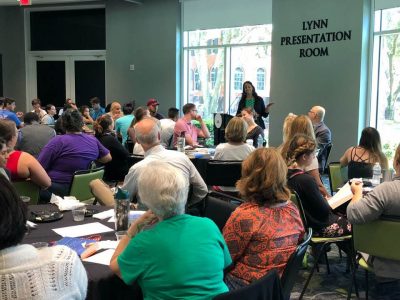
“Stetson R.E.A.D. provides inclusive and invigorating spaces on campus. It is an opportunity for faculty, staff and students to gather together, to read and deeply converse about a common text, to exchange and spark ideas, and to enjoy the gift of community-centered dialogue and lifelong learning. I am especially excited that we will be focusing on poetry this year and engaging with Kaye’s book ‘Date & Time,’ ” said Shankar-Brown.
Other Values Day activities on Sept. 24 include workshop blocks at 9 a.m., 2 p.m. and 3:30 p.m., the Global Citizenship Fair from noon to 2 p.m. in front of the Carlton Union Building, a complimentary Community Lunch from noon to 2 p.m. in the CUB Commons, and the exhibit “Rick Shaefer: The Refugee Trilogy” from noon to 4 p.m. at the Hand Art Center. Cultural Credit will be available at the events.
This year’s Values Day theme “is meant for individuals to explore ways in which they can utilize art to move their audience to action around a social issue, with the ultimate goal of social change,” said Savannah-Jane Griffin, executive director of Community Engagement and Inclusive Excellence. “Phil Kaye is one of the co-directors of Project VOICE, an organization that utilizes poetry to entertain, educate and inspire. He has led poetry workshops around the world, aiming to give individuals the skills and courage to tell their stories and let their voices be heard.
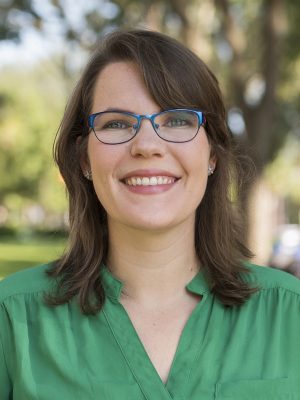
“The Values Day planning committee felt Phil Kaye would be an excellent speaker, because he will show our community the power and influence storytelling through spoken-word poetry can have on an audience. We hope participants leave Values Day feeling empowered to let their voices be heard through many different avenues of art, poetry definitely being one of them,” she said.
Growing up in Corona Del Mar, south of Los Angeles, and attending an independent high school that “at the time was brand-new, a big experiment,” Kaye says, he was ambivalent about – and confused by – poetry.
“I didn’t grow up loving poetry, I didn’t grow up hating it,” he says, even though his Japanese mother and Jewish father loved art and literature. “I had a pretty average relationship to poetry. It was something we studied in class and I felt very excluded from it in some ways. I didn’t get it and sometimes it seemed like my teachers didn’t get it, and we were all trying to wade through this thing together.”
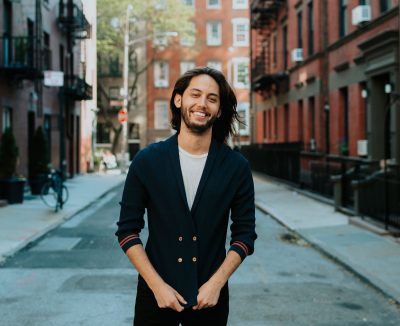
A life-altering encounter – what Oprah Winfrey would call an “aha moment” — came when Kaye was 17 years old and attended a Student Diversity Leadership Conference presented by the National Association of Independent Schools.
“There was a talent show with 800 kids from all around the country, and everybody is sharing their art,” Kaye said. “I saw kids get up and do spoken-word poetry and it was just electrifying. I had really never seen a room react like that, and I remember having this moment to myself of like, “Oh my gosh, this is a possibility, this is something I can do?’ To get up and talk about whatever I wanted, using whatever language I wanted, using all the tools available to me — my body, my voice — was very exciting, very freeing. It felt like the opposite of what I had associated with poetry, which was very rigid and had all these unspoken rules.
“This was an art form where it was about creation, it was about the individual. And it was about communicating with an audience, and that was very exciting to me,” he said.
Kaye had been involved in theater at his high school and, he recalls, “My father was a very good public speaker. I remember even as a little kid it striking me as this kind of superpower that when he wanted to, he could turn it on and hold an entire room and really move people.”
Kaye’s forays into theater and his awe of his father’s “superpower” combined with his satori at the conference.
“Part of the deal with my school was that I do some sort of presentation on what I had learned,” he said. “And I thought, ‘Well, obviously this is it.’ On the plane home I started writing a poem, and a few days later I was sharing it in front of an audience.”
These days, Kaye added, “I’m mostly doing poetry for the money. My real passion is accounting — I do that at night. I do poetry to pay the bills.”
He’s joking, of course.
Kaye has taught and performed spoken-word poetry for thousands of students in 19 countries. His YouTube videos “Before the Internet,” “Repetition,” “Unalienable” and others have been viewed hundreds of thousands of times.
Kaye also is a National Poetry Slam finalist, and the two-time recipient of the CUPSI (College Union Poetry Slam Invitational) award for “Pushing the Art Forward,” given for outstanding innovation in the art of performance poetry.
Along with Project VOICE, which partners with schools to inspire self-expression through spoken-word poetry, Kaye also is a filmmaker and author. He formerly taught workshops in maximum security prisons and was head coordinator of SPACE, a prison arts program.
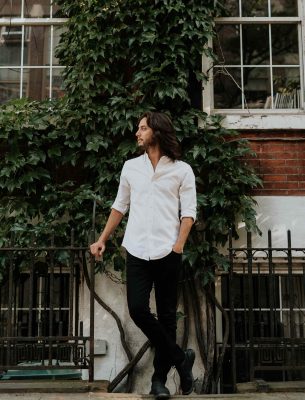
“I think poetry is having a real renaissance right now and, frankly, as much as I almost hate to say it, a big reason is the Internet and specifically YouTube,” Kaye explained. “Part of why my mind was so blown by seeing spoken-word poetry at 17 was that I had never seen anything like it. There was no precedent for it. Not anything like it in my little beach town in California.
“Now all of it is on YouTube. You can go online in a second and watch the entire canon of the contemporary poetry world for free. That’s how I get to do the work that I do,” he continued. “I’ve been very lucky. I travel to a lot of different countries. I just got back from a tour in the Philippines, Singapore and London. It blows my mind to show up in a room in Manila to a packed house and have people care anything about what I say at all, let alone know the words to poems I had scribbled down in my room at one point. And that is very solely because of the Internet. It’s an amazing thing and I think a very positive thing.”
— Rick de Yampert

